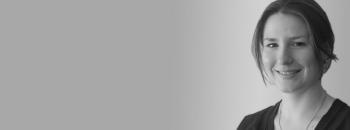The number of associations created by young immunologists for young immunologists has seen steady growth over the past five years [1]. These groups are composed of bachelor, master and PhD students, together with postdocs and early career PIs. They provide their members with the opportunity to discuss and address problems commonly faced by early career researchers, as well as exchanging everything from job postings to laboratory protocols. Additionally, these groups are often formally established associations, providing the leadership team, and the wider membership community, with experience creating, organising and working in a team. These are all important skills for junior immunologists to develop, wherever their careers may take them. During the unprecedented upheaval caused by the Corona pandemic, these associations have come to the fore as a means for generating invaluable connections between junior researchers.
The German Young Immunologists (YI) were established in 2016 at the annual German Society of Immunology (DGfI) conference in Hamburg [2]. A dedicated group of junior researchers enthusiastically took up the challenge after senior DGfI members suggested that younger members could benefit from being more connected. This move within the community to establish an early career-focussed association highlighted how the DGfI valued its more junior members. With this support, an interim group of junior researchers invested a lot of hard work to set up the framework for the YI. The first official board elections took place in 2017, with a term of two years. Some of the initial challenges faced by the group were to figure out their identity and to define their goals. They also had to become more visible, in order to expand their membership reach. For Kilian Schober, board member from 2017–2021, being able to extend his network and become fully integrated into a professional community was one of the highlights. Another highlight was the feeling of making a difference for other young immunologists, in particular by organising and supporting childcare at the annual DGfI conference. Being appreciated by more senior col-leagues for the hard work and innovations was also rewarding. The support of the German Society for Immunology was instrumental in getting this idea up and running. Combined with the drive and initiative of the young researchers who made up the first board (2017–2019), the groundwork was set to grow and expand upon the YI idea.
Independently, Young Immunologist groups were also formed in Italy (SIICA Junior Faculty, established in 2017) [3] and in Austria (Next Generation Immunologists, established in 2019). The unique challenges faced by junior researchers, as well as the importance of a strong personal network, justified the creation of these groups. During the 2018 European Congress of Immunology (ECI) in Amsterdam, the existing YI groups connected to organise a social evening for the younger researchers. There was further exchange during the 2019 joint meeting of the DGfI and SIICA in Munich [2]. Events, including an early career researcher scientific session, discussion panels and a social evening, were co-organised by the respective junior groups to facilitate connections between the two societies.
The second board of the DGfI Young Immunologists (2019–2021) were eager to continue the work of their predecessors, when the Corona pandemic began. While this made some of the planned tasks more difficult, the move to an online world was also an opportunity. Previously, it had been suggested that more countries could benefit from dedicated Young Immunologist groups and that a Europe-wide initiative could be beneficial [1]. The European Federation of Immunological Societies (EFIS) is an umbrella organisation that unites and represents the interests of 35 immunological societies [4]. Therefore, the EFIS board was approached about starting a “Young” EFIS group that would connect junior representatives across Europe. This initiative started within the German YI, in particular from Santiago Costas (YI board member 2019–2021), who led the idea from the beginning. For Santi, his previous experience working in different societies showed how a European-level community could be beneficial to researchers. But it was actually a close call that he became involved in the YI to begin with. After seeing the deadline for applications for board membership had been extended, and having found extra time to apply due to a problematic experiment, he was then elected to the board. In subsequent meetings with the EFIS board, Santi was able to show the strength of the idea and gained the support of EFIS to initiate a taskforce to lead Young EFIS.
Young EFIS (yEFIS) has since taken off (Figure 1).





